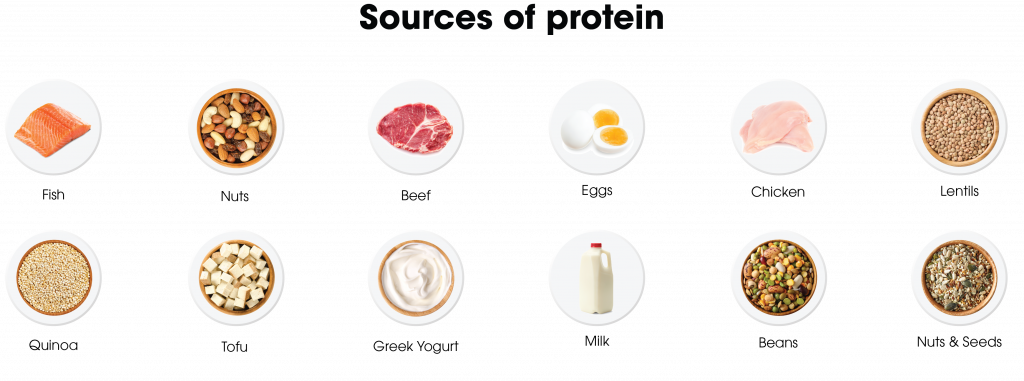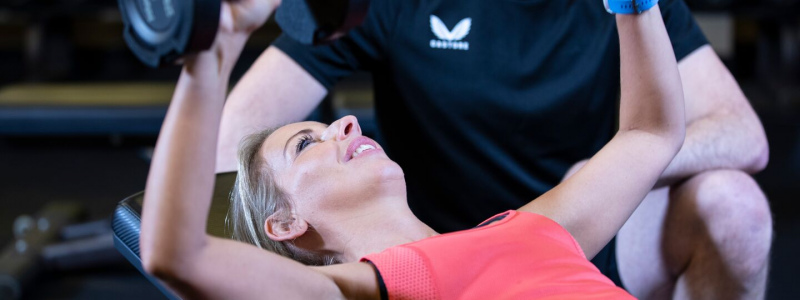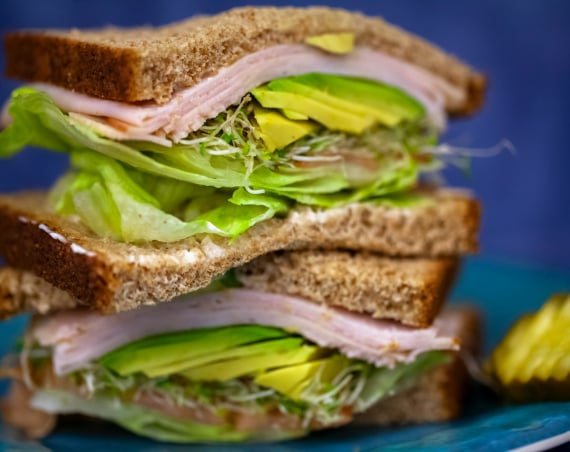Building muscle isn’t all about the workouts. Your diet can play a major part in supporting the development of muscle mass. But with so many food myths out there, it’s not always easy to know the best way to eat if your goal is to build muscle. That’s why we’ve partnered with Optimum Nutrition.
Now, when we talk about muscle-building, we don’t just mean creating a gym-honed physique – all of us can benefit.
“Strong muscles support better overall health, enhance daily functionality and reduce the risk of injury,” says Dr Mark Evans, nutritionist at Optimum Nutrition.
What’s more, prioritising muscle strength is an investment in your future.
“As we age, muscle mass naturally declines, which can lead to issues like weakness, reduced mobility, and a higher likelihood of falls,” explains Dr Evans. “Incorporating resistance training and a healthy balanced diet into your daily routine is key for people of all ages to stay strong, functional and healthy.”
We’ll explain how to put together a diet that supports muscle building – with the added benefits of improving both your workouts and your overall health.
How do I build muscle?
“Muscle mass is primarily developed through a process called muscle hypertrophy,” says Dr Evans. “This occurs when the muscles undergo stress from resistance training, causing micro-tears in the muscle fibres. Under the right conditions, the body can repair these fibres, making them larger.”
It’s during the repair process that our diets come into play.
“This repair and growth requires a sufficient amount of calories: nutrients, namely protein, carbohydrates and fats, and various vitamins and minerals,” says Dr Evans.
“Nutrition is the fuel for muscle growth, recovery, and repair. Without the right balance of nutrients, all the hard work put in at the gym may not translate into muscle gains.”
How many calories do I need to build muscle?
“One of the key principles of building muscle is that you must consume more calories than you burn, creating a caloric surplus,” says Dr Evans.
“When you eat more calories than your body needs for maintenance, the extra energy can be used to repair and grow muscle tissue. However, these calories should come from nutrient-dense meals and snacks that provide a balance of macronutrients—protein, carbohydrates and fats.”
Which foods should we eat to build muscle?
Protein
“It’s advised to consume 1.2 to 2.2 grams of protein per kilogram of body weight each day, depending on your level of activity,” says Dr Evans.
However, this doesn’t mean consuming one protein-loaded meal per day to hit your target.
“This intake should be spread evenly, with 20-40g of protein consumed every 3-4 hours, ensuring a steady supply of amino acids to the muscles,” explains Dr Evans.
“For instance, a person weighing 70 kg should aim for approximately 84 to 154 grams of protein daily, divided evenly into each meal and snack.
“If you’re not sure where to start, aiming for of 1.6 grams of protein per kilo body mass per day is recommended.”
You can also boost your protein intake with nutritious snacks – just make sure you choose wisely.
“Many snack foods are low in protein,” says Dr Evans. “Choose high-protein snacks such as Greek yogurt, cottage cheese, hard-boiled eggs or protein shakes that provide the amino acids needed to support muscle recovery and growth.”
Dr Evans’s preferred sources of protein include:
- Lean meats: A typical serving of chicken, turkey breast or lean beef mince (approximately 100 grams) provides approximately 25-30 grams of protein.
- Fish: A serving of fish like salmon or tuna offers about 22 grams of protein, along with beneficial omega-3 fatty acids.
- Eggs: One large egg provides about 6 grams of high-quality protein, making it a versatile source for muscle building.
- Whey protein: One serving of Gold Standard 100% Whey Protein provides 24g of protein which can be conveniently added to your shaker or recipes to help hit daily protein requirements.
- Greek yogurt: High in protein and probiotics, 200g of Greek yogurt can contain up to 20 grams of protein, making it a superb option as a part of a muscle-building strategy.

Carbohydrates
“Carbohydrates are crucial as they provide the energy needed for your workouts, alongside muscle building and recovery processes,” says Dr Evans. “They’re the body’s primary source of energy during high-intensity workouts.
“Individuals looking to gain muscle mass should aim for a carbohydrate intake of 4-7 grams per kilogram body weight per day.”
Dr Evans’s preferred sources of carbohydrates include:
- Whole grains: Foods like brown rice and oats are rich in energy-giving carbohydrates but also contain some protein, plus essential nutrients. 200g of cooked grains provides about 40-50 grams of carbohydrates.
- Legumes: Beans and lentils are excellent for plant-based protein and are rich in fibre. 200g of cooked lentils provides approximately 40 grams of carbohydrates.
- Quinoa: One of the standout features of quinoa is that it contains all 9 essential amino acids that cannot be made by the body. This makes it an excellent choice for vegans and vegetarians looking to increase their protein intake. 100g of cooked quinoa provides 120 calories, 21 grams of carbohydrates and 4 grams of protein. It can be used in stir fries and salads, or as a side dish.
- Potatoes and sweet potatoes: Medium-sized potatoes or sweet potatoes contain about 23 grams of carbohydrates, making them a great post-workout food for muscle recovery.

Fats
When you’re putting together a diet that specifically supports muscle-building, it’s important to look beyond your goal towards overall health considerations. That means including each of the essential macronutrients – including fats.
“Fats play a role in general health and wellbeing,” says Dr Evans. “Restriction of fat intake is also likely to impair muscle gain because it would be more challenging to remain in a caloric surplus by removing fat from the diet.
“Individuals looking to gain muscle mass are advised to stay in line with recommendations for the general population, with fat intake contributing 20-35% towards total dietary energy intake.”
Dr Evans’s preferred sources of fats include:
- Avocado: A great source of monounsaturated fats, a single avocado provides about 22 grams of fat, and a range of vitamins and minerals.
- Nuts and seeds: Foods like almonds, chia seeds and flaxseeds offer a balance of healthy fats, protein and fibre. A handful of almonds (25-30g) provides 14 grams of fat and 6 grams of protein.
What should I avoid in my diet when I’m building muscle?
“Alcohol can be a significant roadblock for those trying to build muscle,” says Dr Evans.
“While the occasional drink may not drastically affect your progress, excessive alcohol consumption can be detrimental by disrupting the muscle building process and potentially causing poor food choices.”
Remember, building muscle doesn’t have to mean bulking up (unless that’s what you want!). Choose foods that support increasing your muscle mass as part of your overall health and longevity.
Find a club



